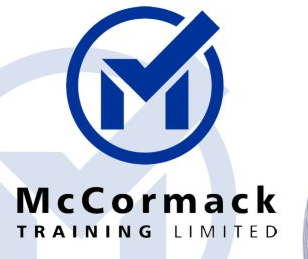All the training refers to those aspects of a person’s behaviour that can be attributed to the presence of a specific genetic or biological anomaly or condition. We can expect people with certain conditions to have a tendency towards certain types of behaviour. This might mean altering the way we do

All the training refers to those aspects of a person’s behaviour that can be attributed to the presence of a specific genetic or biological anomaly or condition. We can expect people with certain conditions to have a tendency towards certain types of behaviour. This might mean altering the way we do things to accommodate the types of behaviour.
This can also have an effect on the way in which we support the individual. The training addresses alternative approaches in positive behaviour support with physical intervention only as a last result if everything else has failed.
Settings
Healthcare
Social care
Education
Populations
Services supporting adults
Services supporting children
People with mental health conditions
People with learning disabilities
Autistic people
People acquired brain injury
People living with dementia
Deliver training into:
Nursing homes
Dementia homecare services
Delirium and dementia wards
Older adult wards
Care of the elderly wards
Memory cafes
Meals on wheels
Transport services for older adults etc
McCormack Training Ltd , and more specifically our training, is certificated using a selection of settings and populations set by UKAS with reference to the RRN Training Standards.
The training will be in modules. These can be taught on their own or consecutively as a block course.
Module 1
Module 2
Conflict Resolution Training
The course meets the (Nee) NHS Protect National Guidelines.
Learning outcomes, you will be able to:
Describe the common causes of conflict including those faced by the elderly, people with dementia, delirium, learning difficulties, children, and those suffering from trauma or post experiences.
Describe different forms of communication
Give examples of communication breakdowns
Explain different methods of communication models that can assist conflict resolution
Describe patterns of behaviour you may encounter during different interactions
Explain the warning and danger signs
Give examples of distance when dealing with conflict
Give examples of impact factors
Describe different methods for dealing with possible conflict situations
Explain the use of 'reasonable force' as it applies to conflict resolution
Module 3
Low Level Disengagement Techniques
Stance, Posture and Movement
Wrist Grabs
Single
Double
Body Holds
Clothing
Strangle Holds
Exit routes to the rear
Exit route in front
Held against a wall
Working with Other Colleagues
Module 4
Prompting, Guiding and Escort Holds
Nonrestrictive Guiding Techniques
Restrictive Holds
Relocation and Containment Holds (Non Pain Restraints).
Seated
Stairs
Module 5
Safe Guarding Techniques.
Relocation/Support to the Floor
Containment on the floor – Prone and Supine Position
Relocation to a Standing Position
Module 6
Seclusion
Rapid Tranquilisation
Long term Segregation
Clinical Holding
About Us
McCormack Training was established in 1996 by Senior Trainer Andy McCormack, who has a Military and Civilian/Police Service background, a Certificate in Education and various other nationally recognised training qualifications.
He is also qualified in Suzy Lamplugh training techniques, a graduate member of the ICM (Institute of Conflict Management) and an NHS Trust training provider.
He has developed courses that meet the current standards set by The Security Industry Authority (SIA), National Utility Companies in Personal Safety Awareness Training, Positive Management of Aggression Courses meeting the guidelines set by (nee NHS Protect) and RRN, and internationally developed Officer Safety Training programmes for the Dublin Airport Authority and The Republic of Ireland Police Force (An Garda Siochana).
McCormack Training empowers clients' staff to deal with a wide-range of issues in an efficient, effective, professional manner, complying with all relevant government legislation and client instructions aiding their employees to reduce sickness levels and absenteeism, stress and increasing self-confidence.
McCormack Training Ltd offers courses through which local authorities, enforcement agencies or individuals can train for the future.
All the training refers to those aspects of people’s behaviour that can be attributed to the presence of a specific genetic or biological anomaly or condition. We can expect people with certain conditions to have a tendency towards certain types of behaviour. This might mean altering the way we do things to accommodate these types of behaviour.
This can also have an effect on the way in which we support the individual.
The training addresses alternative approaches in personal safety awareness, positive behaviour support with physical intervention only as a last result if everything else has failed.
© 2025 coursetakers.com All Rights Reserved. Terms and Conditions of use | Privacy Policy